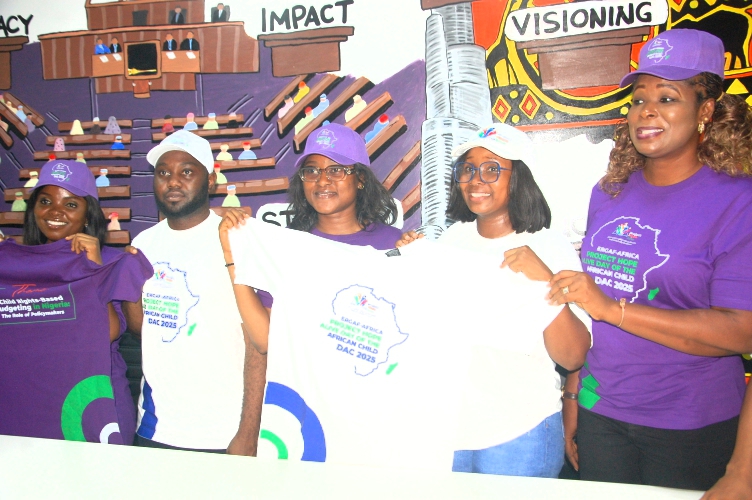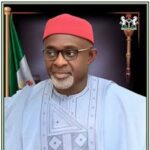By Jonathan Lois
As Nigeria joins other African nations to mark the 2025 Day of the African Child, the Erudite Growth and Advancement Foundation (ERGAF) has urged lawmakers and development stakeholders to adopt a child-centered budgeting model that prioritizes the rights and welfare of children in national planning.
At a press briefing to commemorate the day, EGAF’s Deputy National Coordinator, Queen Ala Dokubo, said this year’s celebration centers on the theme, “One Team, Planning and Budgeting for Children’s Rights.”
She explained that the initiative seeks to transform public budgets into tools for equity, protection, and inclusive access to quality education for every Nigerian child.
Dokubo noted that the African Union’s 2025 agenda—championed by the African Committee of Experts on the Rights and Welfare of the Child (ACERWC)—calls on member states to evaluate their progress on child-sensitive budgeting since 2010.
The committee has also recommended legislative reforms, data-driven policymaking, and the inclusion of children in national development discourse.
“This year, we’re not just celebrating the African child; we’re advocating for a fundamental shift in how Nigeria budgets for her children. We want lawmakers to adopt inclusive, evidence-based budgeting that truly reflects children’s needs,” she said.
Dokubo also acknowledged the importance of collaboration, thanking EGAF’s partners including the African Union, ECOSOC, ACERWC, Federal Ministries, UNESCO, Commonwealth Youth Council, civil society groups, and media platforms.
“This is not just a day for speeches—it is a movement for accountability. We are laying the foundation for an Africa where every child is seen, heard, and empowered to thrive,” she added.
Delivering the keynote on behalf of ERGAF President, Ambassador Chibuzo Okereke, data analyst Raphael Tarbo announced that a bill to establish a National Children’s Commission is currently before the House of Representatives—a step he described as “progress in the right direction.”
“But it doesn’t stop at legislation. We need a united front across government, civil society, and the public to ensure children’s rights are protected and funded,” he emphasized.
Through its flagship Project Upper Life Initiative—a youth-led advocacy born from the National Youth Service Corps (NYSC) community project—ERGAF has consistently championed child rights and education. Since 2016, the project has reached over 10,000 underprivileged children in Abuja through scholarships, school supplies, policy dialogues, and STEM career workshops.
To mark this year’s celebration, ERGAF organized a series of interactive events, including spoken word, drama, and storytelling by schoolchildren—highlighting their experiences with underfunded schools, unsafe learning environments, and digital exclusion.
Panel discussions featuring lawmakers, civil society leaders, and education stakeholders explored strategies to reform public financing for child welfare.
ERGAF also announced plans to support an additional 4,500 schoolchildren this year through direct interventions such as distribution of learning materials and mentorship programs.
The foundation reaffirmed its commitment to national initiatives like the Abuja Walk for Literacy and citizenship education campaigns across 23 states.
ERGAF concluded by calling on policymakers, development partners, educators, and citizens to work together in turning promises into measurable progress for the Nigerian child.



